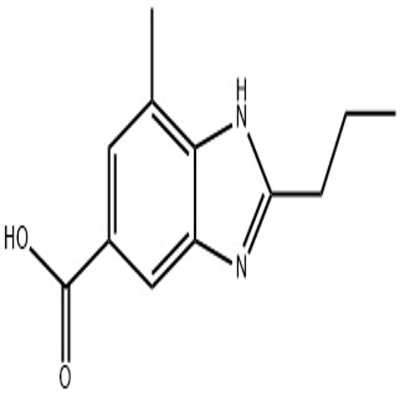-
Categories
-
Pharmaceutical Intermediates
-
Active Pharmaceutical Ingredients
-
Food Additives
- Industrial Coatings
- Agrochemicals
- Dyes and Pigments
- Surfactant
- Flavors and Fragrances
- Chemical Reagents
- Catalyst and Auxiliary
- Natural Products
- Inorganic Chemistry
-
Organic Chemistry
-
Biochemical Engineering
- Analytical Chemistry
-
Cosmetic Ingredient
- Water Treatment Chemical
-
Pharmaceutical Intermediates
Promotion
ECHEMI Mall
Wholesale
Weekly Price
Exhibition
News
-
Trade Service
The production process of 3-(4-methoxybenzoyl)-pyridine-2-carboxylic acid is a multi-step process that involves several chemical reactions.
The following is an overview of the production process, which can be divided into several stages, including:
- Synthesis of intermediates: The production process of 3-(4-methoxybenzoyl)-pyridine-2-carboxylic acid involves the synthesis of several intermediates.
One of the key intermediates is 4-methoxybenzaldehyde, which is synthesized by the reduction of 4-methoxybenzoic acid. - Condensation reactions: The synthesis of 3-(4-methoxybenzoyl)-pyridine-2-carboxylic acid involves several condensation reactions, including the condensation of 4-methoxybenzaldehyde with pyridine-2-carboxaldehyde.
This reaction is typically carried out in the presence of an acid catalyst, such as hydrochloric acid, to promote the reaction. - Hydrolysis: After the condensation reaction, the resulting product is subjected to hydrolysis, which involves the removal of the benzyl group through hydrolysis with a strong acid, such as concentrated sulfuric acid.
The resulting product is then neutralized with a base, such as sodium hydroxide, to obtain the final product. - Purification: The final product is purified by several methods, including crystallization, filtration, and chromatography.
The purified product is then dried and ground to a fine powder. - Characterization: The purified product is characterized by various analytical techniques, such as spectroscopy, to determine its chemical structure and properties.
Overall, the production process of 3-(4-methoxybenzoyl)-pyridine-2-carboxylic acid involves several chemical reactions and purification steps.
The process can be carried out using various chemical reagents and solvents, and the specific conditions used will depend on the scale of the production and the desired purity of the final product.
The quality of the starting materials used in the production process will also play a significant role in determining the quality of the final product.
It is important to note that the production process of this compound can be hazardous, and proper safety measures and protocols should be followed to prevent accidents and ensure the safety of workers involved in the production process.





![benzyl N-{2-[4-(4,4,5,5-tetramethyl-1,3,2-dioxaborolan-2-yl)phenyl]ethyl}carbamate](https://file.echemi.com/fileManage/upload/goodpicture/20210823/m20210823171124543.jpg)

